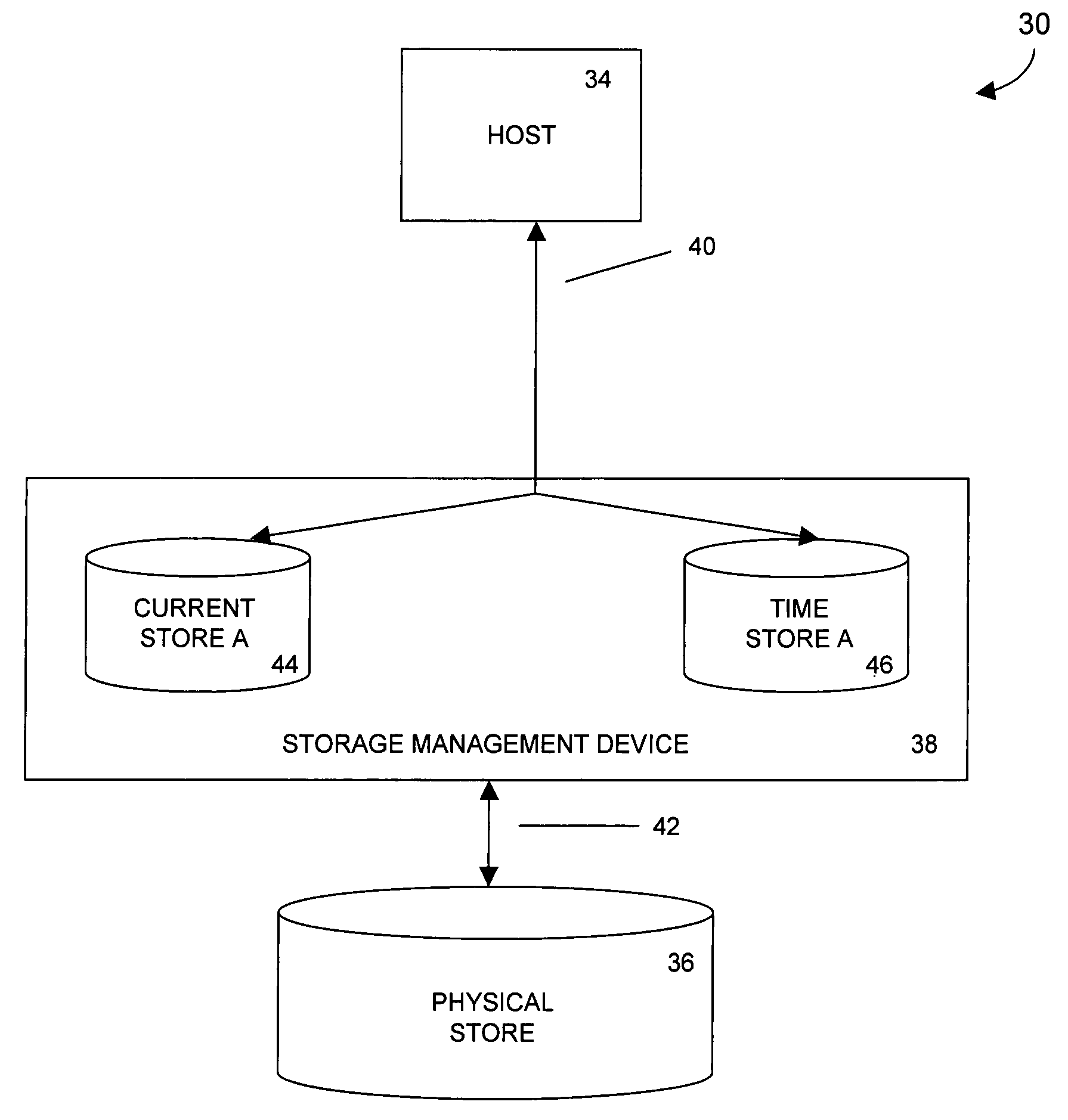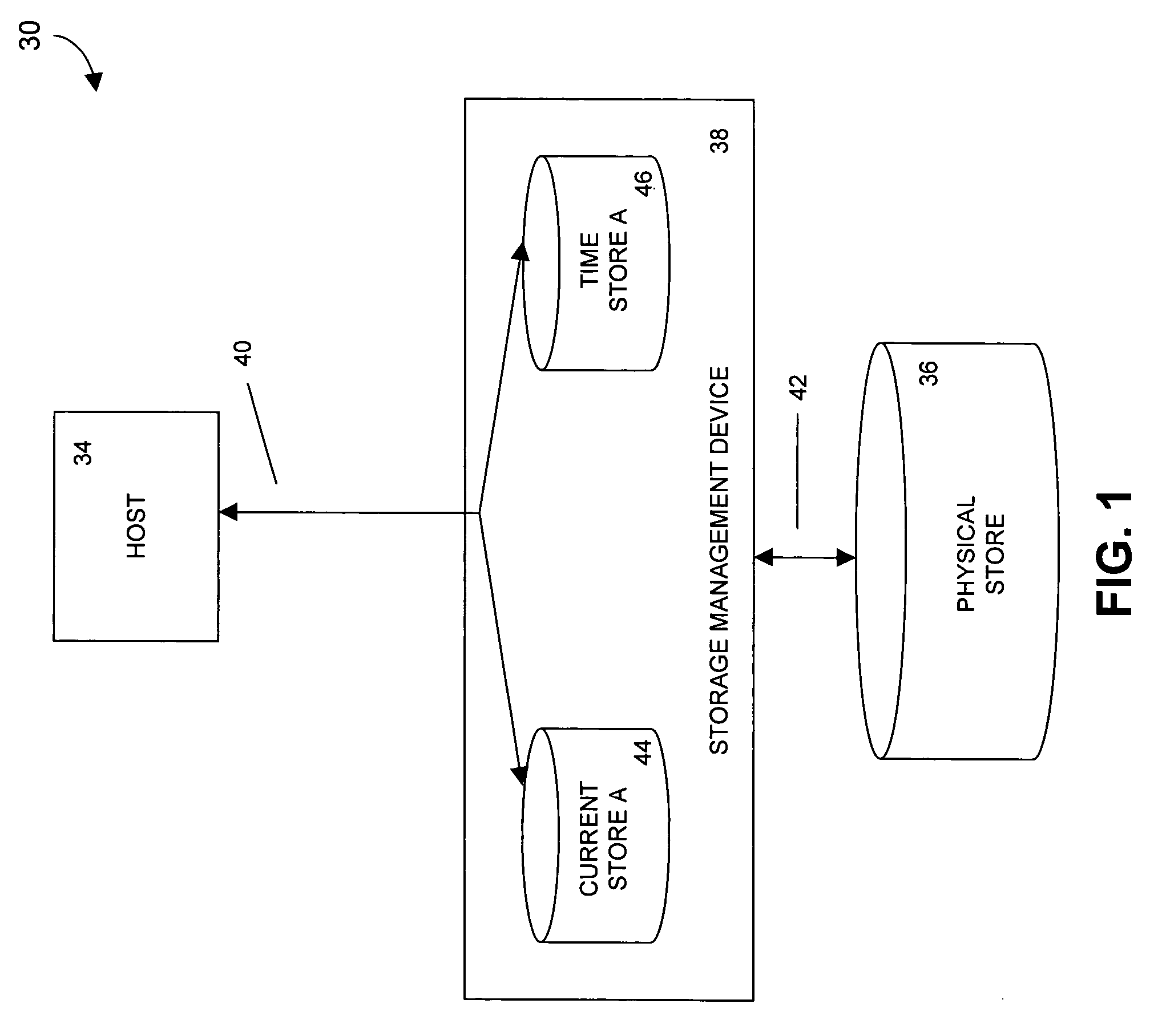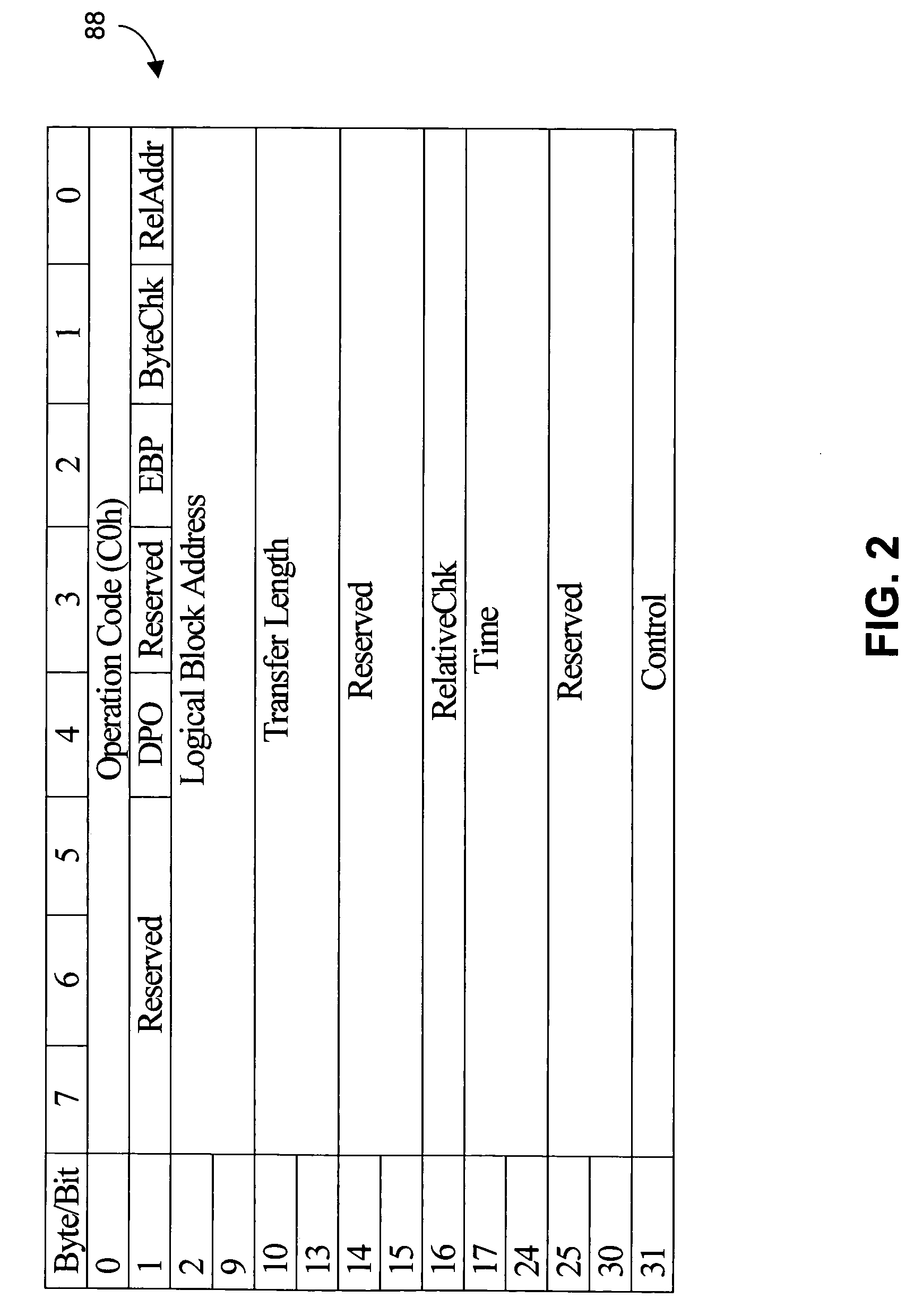Systems and methods for synchronizing the internal clocks of a plurality of processor modules
a technology of processor modules and internal clocks, applied in the field of data storage, can solve problems such as data corruption, ineffective mirroring, and affecting the operation of the entire enterpris
- Summary
- Abstract
- Description
- Claims
- Application Information
AI Technical Summary
Benefits of technology
Problems solved by technology
Method used
Image
Examples
Embodiment Construction
[0063]FIG. 1 provides a general overview of a storage system 30 that allows for the generation of images of a data store from points in time that are prior to a request time. A host 34 communicates with a physical store 36 via a storage management device 38. In one embodiment, the physical store 36 stores digital data. In a version of this embodiment, the physical store 36 is one or more disk drives. For example, the disk drives can be magnetic disk drives, optical disk drives, or a combination of both types of disk drives. In another version of this embodiment, the physical store 36 includes one or more tape drives. The physical store 36 can be one or a combination of drives, or a storage area network. The physical store 36 can itself be a virtual drive presented by any of a variety of storage networks, appliances, or controllers. The physical store 36 can be, for example, a mirrored disk or RAID system, or other storage appliance.
[0064] The host can be any type of network or syst...
PUM
 Login to View More
Login to View More Abstract
Description
Claims
Application Information
 Login to View More
Login to View More - R&D
- Intellectual Property
- Life Sciences
- Materials
- Tech Scout
- Unparalleled Data Quality
- Higher Quality Content
- 60% Fewer Hallucinations
Browse by: Latest US Patents, China's latest patents, Technical Efficacy Thesaurus, Application Domain, Technology Topic, Popular Technical Reports.
© 2025 PatSnap. All rights reserved.Legal|Privacy policy|Modern Slavery Act Transparency Statement|Sitemap|About US| Contact US: help@patsnap.com



